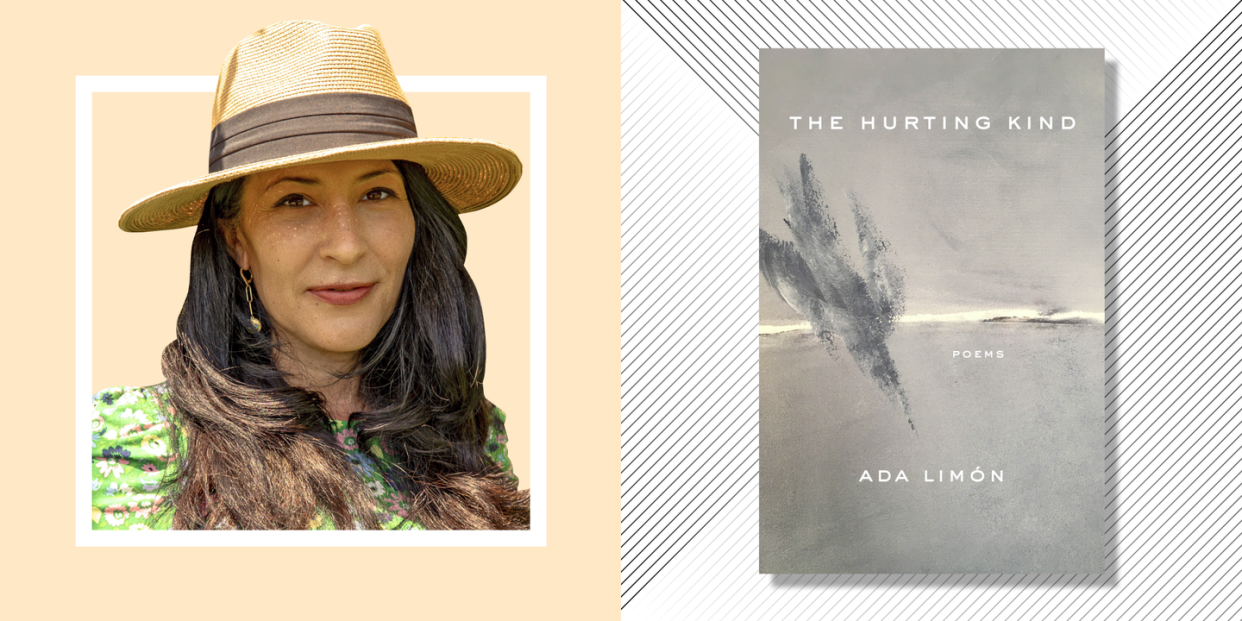Ada Limón, the 24th U.S. Poet Laureate, Speaks on Writing and Her New Role

- Oops!Something went wrong.Please try again later.
In September, Ada Limón assumed the role of U.S. poet laureate, taking over from Joy Harjo, who had occupied the position since 2019. Limón, who also teaches and hosts the podcast The Slowdown, is the author of six volumes of poetry—most recently, The Hurting Kind. In its announcement, the Library of Congress said of its latest appointee: “Ada Limón is a poet who connects. Her accessible, engaging poems ground us.... They speak of intimate truths, of the beauty and heartbreak that is living, in ways that help us move forward.” Oprah Daily Books VP Leigh Haber connected with Limón to learn where she finds inspiration and what her hopes are for her new office.
Leigh Haber: Congratulations on being named U.S. poet laureate, Ada. When you first started out, did you ever dream that you would become one of only 24 to be named to the post? Wow!
Ada Limón: Thanks so much. No, this was never even on my radar. We poets tend to keep our heads down—perhaps out of self-preservation—and write word by word, line by line, just trying to be in the world as artists. To tell the truth, I’m still processing it all.
Who gave you the news?
Dr. Carla Hayden, Librarian of Congress, told me over Zoom. It was surreal. I felt as if all the selves of my body were spinning in a million directions. I went totally quiet. And then there was a moment when I realized, Oh, this requires a response. I thought about the poets who preceded me—the work they’ve done, the foundation they’ve laid. They collectively pushed me to say to myself: Rise to this occasion. Find your words. Find your breath. Finally I answered, “Yes, I’d be honored.”
Ever since Rita Dove was appointed poet laureate in 1993, it seems the person occupying the post has had a mission. For Dove, it was “to bring poetry back into everyday life”; for Tracy K. Smith, to use poetry “to seek to bridge many different types of divides.” Have you settled on your mission?
The job is to elevate, celebrate, and speak to poetry’s role. The poets laureate who predate me have done amazing work reminding people that poetry exists, that it’s a presence, that it’s here. As a result, poetry is everywhere. Young people are more and more excited about it. I want to build on that, but I also want to talk about the power of our art form—what it has the potential to do.
What’s an example?
I truly believe poetry can be a tool to reconnect us with our humanity, with what it is to be a person processing grief and rage and joy and love and despair and hope. I see it as uniquely capable of exploring all those emotions at once. Also, in the midst of our climate crisis, reading and writing poetry can repair our relationship with our planet, by helping us feel less distant from it. Deep attention to poetry about nature and animals can reconnect us to the earth.
In your latest collection, The Hurting Kind, much of your focus is on slowing down, watching birds, feeling moments pass from your backyard in Kentucky. But a decade or so ago, you were writing poetry on the side while running a large department at Condé Nast in New York City. Then, when your stepmother died of cancer at age 51, you made a life change. How has moving and stepping away from corporate life changed the way you write?
That’s such a beautiful question because grief affects us all, but besides the sadness, it can propel us into the world in surprising ways. Watching my stepmother die put everything in perspective. It prompted me to ask, All right, well, who am I? Who do I want to be? What if I only had this much time left? For me, that meant becoming a full-time artist.
How do you reconcile your public role with the self that needs solitude to compose?
The artist that is making and writing a poem is quiet, tender, receptive, distracted—very much in my feelings. Whereas the person that goes out and does readings and performs is hopefully generous and graceful and thinking about the other. There are many sides to the self.
What made you fall in love with poetry?
Writing my first draft of a poem in a college course, I thought: These are my words. It felt like freedom. Poetry leaves room for both breath and mystery. Poetry is wonder.
You Might Also Like

